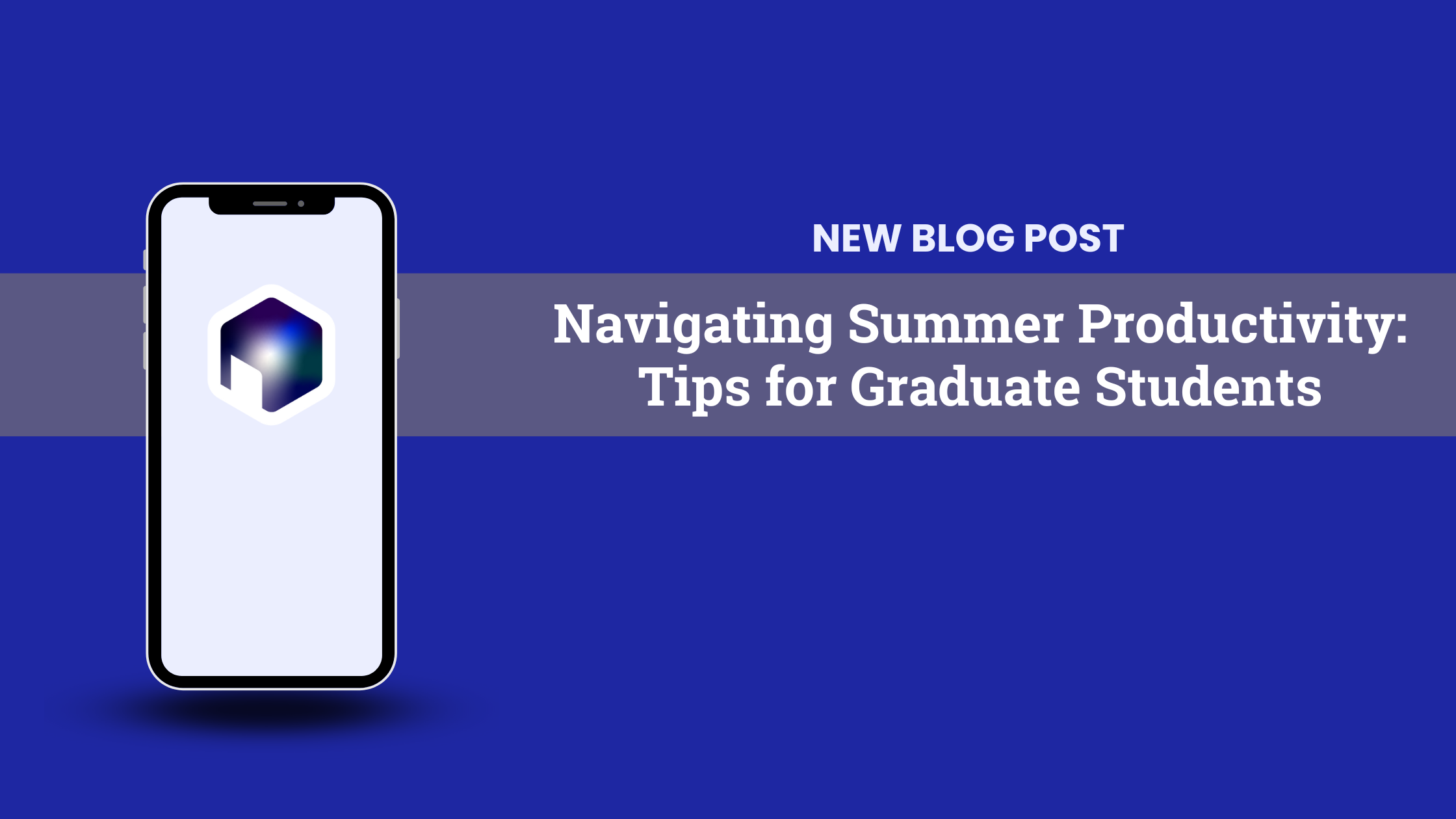
Navigating Summer Productivity: Tips for Graduate Students
As the sun shines brighter and the days get longer, we often find ourselves at a crossroad. While summer promises a break from classes and possibly a lighter workload, it also presents an opportunity to make significant progress on research, professional development, and personal growth. Balancing productivity and relaxation during these months can be challenging, but with the right strategies, we can make the most of our summer.
Here are some tips to remain productive yet balanced:
1. Set Clear Goals:
Start the summer with a clear vision of what you want to accomplish. Break down your goals into smaller, manageable tasks and create a timeline for completing them. Whether it’s writing a thesis chapter, conducting experiments, or learning a new skill, having specific objectives will help you stay focused and motivated throughout the summer.
While this resource does not employ SMART goals, it is a good list for inspiration for goals you could consider to achieve. Check out this resource for setting effective SMART goals. We also talk about setting SMART goals in this blog post.
2. Establish a Routine:
While the allure of lazy summer days may be tempting, maintaining a consistent routine can help you stay on track. Set regular work hours for yourself, whether it’s in the morning, afternoon, or evening, and stick to them as much as possible. Having a routine creates a sense of structure and discipline, making it easier to manage your time effectively.
3. Take Breaks:
Productivity doesn’t mean working non-stop. It’s essential to take regular breaks to rest and recharge. Incorporate short breaks into your workday to stretch, go for a walk, or grab a snack. Schedule longer breaks or days off to relax and pursue leisure activities that rejuvenate you. Remember, downtime is just as crucial as productivity for maintaining overall well-being.
4. Prioritize Self-Care:
Summer is the perfect time to prioritize self-care and mental health. Make time for activities that nourish your body and soul, such as exercise, meditation, hobbies, or spending time with loved ones. Take advantage of the warmer weather to get outdoors and soak up some vitamin D. By taking care of yourself, you’ll be better equipped to tackle academic and professional challenges
Check out this article on the benefits of outdoor meditation or look here for some outdoor activity inspiration.
5. Stay Organized:
Keep track of your tasks, deadlines, and commitments using a planner, calendar, or task management app, such as these suggestions. Set reminders for important dates and deadlines to avoid last-minute stress. Break larger projects into smaller, actionable steps, and regularly review your progress. By staying organized, you’ll maintain clarity and control over your workload.
6. Seek Support:
Don’t hesitate to reach out for support when needed. Whether it’s discussing research ideas with your advisor, seeking feedback from peers, or accessing campus resources, there’s a wealth of support available to graduate students. Collaboration and mentorship can enrich your academic experience and provide valuable insights and perspectives.
7. Embrace Flexibility:
While it’s essential to have goals and plans, be prepared to adapt and adjust as needed. Unexpected challenges or opportunities may arise during the summer, requiring flexibility and problem-solving skills. Embrace change as part of the learning process and remain open to new possibilities and experiences.
8. Reflect and Celebrate:
Take time to reflect on your achievements and progress throughout the summer. Celebrate milestones, no matter how small, and acknowledge your hard work and dedication. Reflecting on your experiences can provide valuable insights into your strengths, areas for growth, and goals for the future.



